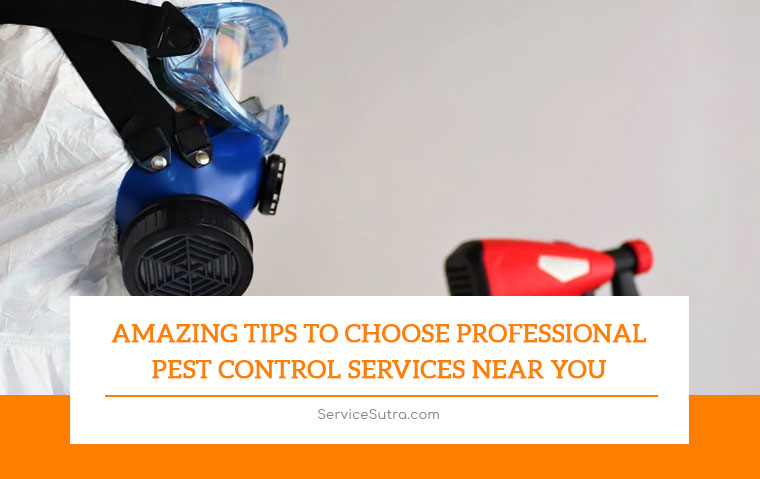Comprehensive Pest Control Clovis Solutions for each Need
Comprehensive Pest Control Clovis Solutions for each Need
Blog Article
Comprehending the Numerous Methods to Parasite Control: A Comprehensive Guide

Natural Parasite Control Approaches
Employing eco-friendly strategies such as friend planting and biological parasite control is vital for effectively handling bugs in farming settings. Companion growing entails growing different crops in proximity to prevent pests, boost nutrient uptake, and improve general crop health.
Organic bug control entails presenting natural killers or microorganisms to regulate pest populaces. Ladybugs, as an example, feed on aphids, managing their numbers without the need for chemical pesticides. Another example is using Bacillus thuringiensis (Bt), a germs that targets particular insect parasites while being safe to people, animals, and beneficial insects.
These eco-friendly approaches not only lower the dependence on artificial chemicals however additionally assist maintain biodiversity and dirt health. By including natural pest control techniques right into agricultural methods, farmers can achieve lasting bug management while lessening negative influences on the environment.

Chemical Bug Control Solutions
Along with all-natural parasite control techniques, the use of chemical pest control solutions plays a substantial role in properly managing pest populations in farming settings. Chemical parasite control services are formulated to target particular pests that may cause considerable damages to plants. These options often have artificial chemicals that are designed to remove bugs quickly and effectively.
Among the crucial benefits of chemical bug control options is their efficiency in controlling pest problems widespread. Farmers can use these services utilizing various methods such as splashing, fumigation, or seed therapy to protect their plants from harmful bugs, weeds, and illness. Additionally, chemical pest control options are reasonably simple to use and can give quick outcomes, aiding farmers safeguard their returns and lessen financial losses.
Nevertheless, it is necessary to utilize chemical parasite control remedies deliberately to reduce potential adverse influence on the setting, non-target organisms, and human wellness. Correct application methods, adherence to safety and security guidelines, and regular surveillance are critical to ensure the accountable use chemical pest control services in agricultural practices.
Biological Parasite Control Approaches
Organic insect control comes close to take advantage of all-natural predators or virus to manage parasite populaces in farming settings efficiently. One common biological control strategy is the intro of all-natural enemies, such as ladybugs or parasitical wasps, to target certain bugs.
One more biological control method includes making use of pathogens like microorganisms, infections, or fungi to contaminate and kill bugs. These microbial agents can be sprayed on crops or presented right into the dirt to combat numerous bugs without harming advantageous pests or other wildlife. Additionally, using scents to interrupt the breeding patterns of parasites is another effective biological control method. By disrupting their reproduction, this method helps to lower insect populaces without the requirement for chemical treatment. Overall, Extra resources biological pest control approaches supply a lasting and targeted service to pest management in agriculture.
Integrated Pest Management (IPM)
Integrated Insect Management (IPM) is an extensive method that combines different insect control methods to effectively take care of and lessen pest populaces in agricultural systems. IPM concentrates on lasting prevention of insects with a combination of organic, social, physical, and chemical control approaches. By incorporating these different strategies, IPM intends to minimize dependence on chemical pesticides, lessen environmental impact, and promote lasting pest management methods.
One trick aspect of IPM is making use of organic controls such as natural killers, bloodsuckers, and pathogens to manage insect populaces. This method uses the power of nature to maintain an equilibrium in between insects and their all-natural enemies without creating injury to the atmosphere.
Furthermore, IPM involves social practices like plant environment, cleanliness, and turning manipulation to develop unfavorable conditions for pests and interrupt their life process. Physical controls such as barriers, traps, and mulches are likewise made use of to stop parasite problems.
Physical and mechanical Insect Control Techniques
Making use of non-chemical approaches, such as physical and mechanical parasite control methods, is an important element of comprehensive insect management techniques, developing upon the structure of Integrated Parasite Administration's all natural strategy. Mechanical bug control involves the use of physical obstacles or catches to stop bugs from accessing and damaging crops or structures. This technique can consist of methods like installing screens on windows, making use of row covers in agriculture, or employing sticky catches to capture bugs.
Physical insect control techniques, on the various other hand, focus on directly eliminating insects click for more through physical ways. Utilizing warmth therapies to eradicate bed bugs or vacuuming up insects like crawlers or ants can be effective methods to handle problems without the usage of chemicals. By integrating these physical and mechanical pest control methods right into an Integrated Parasite Management plan, experts and individuals can reduce reliance on chemicals while still effectively taking care of pest populations and lessening damage.
Conclusion

In enhancement to natural bug control methods, the use of chemical parasite control services plays a significant function in properly handling pest populaces in farming atmospheres.One of the vital advantages of chemical pest control options is their performance in managing pest infestations on a big scale.Integrated Bug Monitoring (IPM) is an extensive approach that integrates various insect control approaches to successfully handle and decrease pest populaces in agricultural systems.Making use of non-chemical approaches, such as mechanical and physical insect control strategies, is a vital facet of detailed go to website insect monitoring methods, developing upon the structure of Integrated Parasite Administration's holistic approach. By incorporating these physical and mechanical pest control techniques right into an Integrated Insect Monitoring strategy, people and experts can decrease dependence on chemicals while still efficiently taking care of pest populations and lessening damage.
Report this page